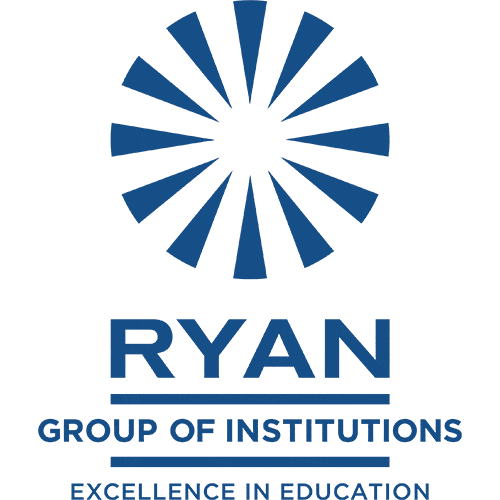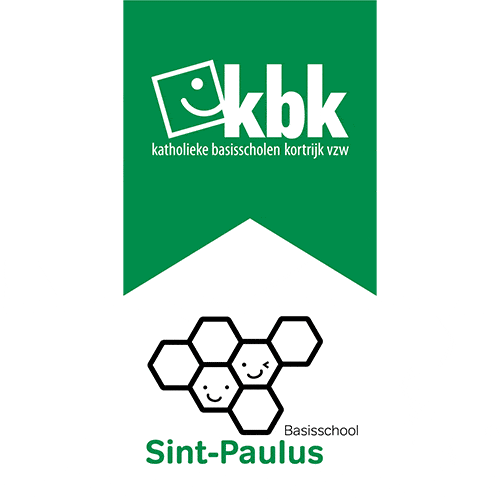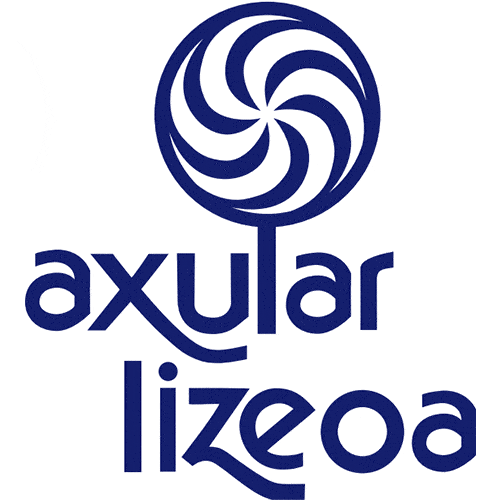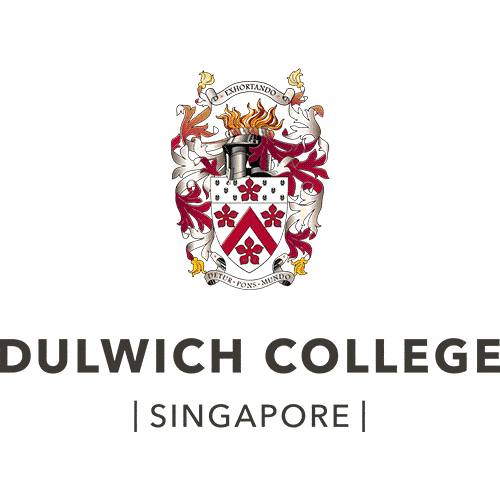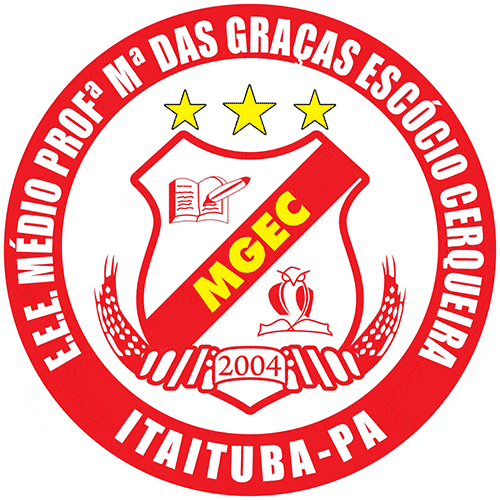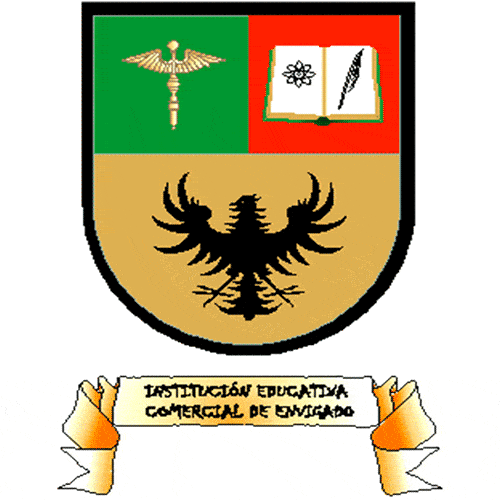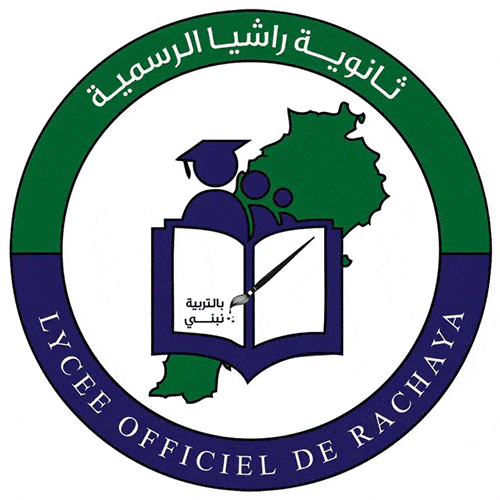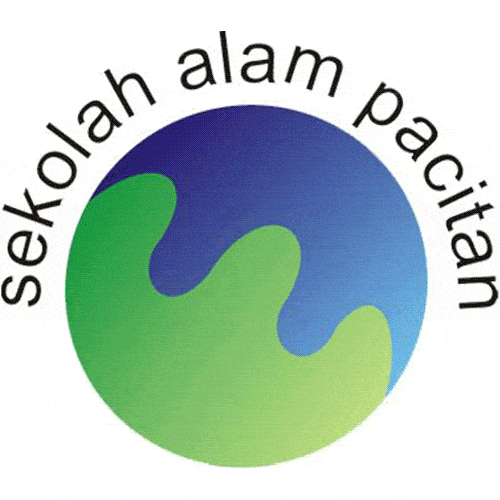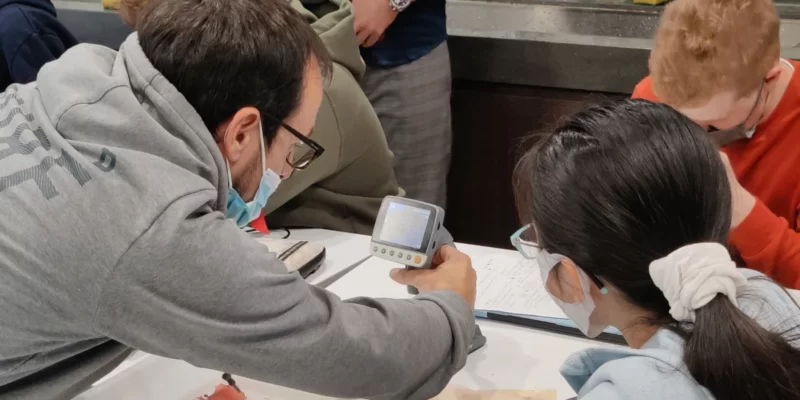- Home
- World’s Best School Prizes
- The Five Prizes
- Environmental Action
The World’s Best School Prize for Environmental Action recognises and celebrates schools that play an active role in combatting the climate crisis, through the education of their students and wider community, to help them take action to protect their future.
Discover the winning and shortlisted schools championing environmental education, student-led eco initiatives, and sustainable practices, molding future planet stewards.
Winner
Ryan International School, Vasant Kunj
New Delhi, India
Our Top 3 Finalists
New Delhi, India
Dubai, United Arab Emirates
Kortrijk, Belgium
Top 10 shortlist
Axular Lizeoa
Spain
Dubai International Academy Emirates Hills
United Arab Emirates
Dulwich College (Singapore)
Singapore
Hero School
Guatemala
Rashaya Public High School
Lebanon
Sekolah Alam Pacitan
Indonesia
Sint-Paulus
Belgium
Winner
Finalists
Mamoura British Academy
United Arab Emirates
Muntinlupa National High School
Philippines
Top 10 shortlist
New Myrnam School
Canada
The Harbour School Hong Kong
Hong Kong, China
New Myrnam School
Canada
The Harbour School Hong Kong
Hong Kong, China
Winner
Bonuan Buquig National High School
Finalists
International School of Zug and Luzern
Green School Bali
Axular Lizeoa
Spain
Turning plastic waste into a sustainable school
Axular Lizeoa, a government-funded pre-school to High School in San Sebastian, Spain, embodies a commitment to protecting the environment by transforming plastic waste into infrastructure, materials and life lessons. The school, which serves 889 students, offers a rich curriculum that fosters awareness and action towards the Sustainable Development Goals (SDGs).
Central to Axular Lizeoa’s ethos is the "Recycled School" project, a practical manifestation of its commitment to environmental action. This initiative not only recycles over 50,000 bottles and cups into useful objects like planters and furniture but also serves as a tangible lesson in ecological responsibility for students. Through this project, the school has successfully reduced waste and created sustainable structures within its campus, actively involving students in the process.
The impact of the school’s initiatives is profound. Results highlight significant waste reduction. The construction of eco-friendly facilities such as sidewalks from recycled materials has not only improved campus accessibility but also won accolades, enhancing community engagement and pride. The school's approach has boosted enrolment and attendance, reflecting the community’s growing appreciation of its sustainability efforts.
Leadership at Axular Lizeoa champions innovative projects like the sustainable sidewalk and also fosters broad community collaboration, involving families, local businesses, and government agencies. These partnerships amplify the school’s impact, driving further innovations in sustainability education.
Should Axular Lizeoa win the World's Best School Prize for Environmental Action, the funds will be directed towards expanding its impactful "Recycled School" initiative, further integrating sustainability into educational practices and strengthening community ties through shared environmental stewardship.
Dubai International Academy Emirates Hills
United Arab Emirates
Fostering global environmental stewardship
Dubai International Academy Emirates Hills, an independent kindergarten through secondary school in Dubai, UAE, empowers students with programmes like personalised learning pathways and project-based learning, driving community change through culturally-responsive education and sustainability projects. The academy, established in 2005, serves over 2,725 students, integrating rigorous international education with a strong commitment to environmental action.
The school's vibrant Eco Club leads several sustainability projects, such as a significant E-waste recycling campaign and model COP28 events, raising awareness and fostering tangible community action. These initiatives exemplify the academy's commitment to environmental advocacy and are integrated into the IB curriculum, enhancing student participation in global conservation efforts.
Leadership at Dubai International Academy promotes a culture where innovation in sustainability is encouraged and celebrated. Their efforts have led to the implementation of educational trips to Borneo and Kenya, where students actively engage in wildlife conservation and community development projects. These experiences are pivotal in instilling a lifelong commitment to environmental stewardship among students.
Should Dubai International Academy Emirates Hills win the World's Best School Prize for Environmental Action, the prize money would be used to advance sustainability efforts by establishing hydroponic systems for growing organic vegetables on campus. This initiative would further reduce the school's carbon footprint and enhance student engagement in eco-friendly practices, reinforcing the academy's role as a leader in environmental education and action.
Dulwich College (Singapore)
Singapore
Embedding eco-consciousness into the fabric of College
Dulwich College (Singapore), an independent kindergarten to secondary school in Singapore, is pioneering environmental sustainability in education, addressing global challenges like climate change and resource scarcity. Established in 2014, the college serves 2,930 students, embedding eco-consciousness into every aspect of school life through its "Live Worldwise" ethos.
The College's standout initiative, The Greenhouse, is Singapore’s first net-zero-energy building that acts as a living laboratory for sustainable education. This facility supports the academic curriculum and serves as a practical example of sustainable building practices, featuring energy-efficient systems and a rooftop garden. It allows students to engage directly with sustainable technologies, fostering a deep, hands-on understanding of environmental stewardship.
Significantly, the College has achieved remarkable environmental impact, evidenced by a student-led waste reduction project that has dramatically altered perceptions and behaviours regarding food waste on campus. This project is part of a broader strategy that includes extensive recycling programmes, energy conservation measures, and community engagement projects like the “Workers Wellbeing Project”, emphasising social sustainability.
Dulwich College (Singapore) has also implemented "One Planet" initiatives involving parents and external partners in activities like community clean-ups, enhancing environmental and community engagement. This inclusive approach extends to how the curriculum is delivered, integrating sustainability across subjects and encouraging students to take leadership roles in environmental projects.
Should Dulwich College (Singapore) win the World’s Best School Prize for Environmental Action, the prize money will be reinvested into further expanding the College’s sustainability programmes. This funding will enhance both infrastructure and educational programmes, deepening the College’s commitment to fostering an environmentally conscious and action-oriented student body.
EEEM Professora Maria Das Graças Escócio Cerqueira
Brazil
Creating environmental guardians in the heart of the Amazon
EEEM Professora Maria das Graças Escócio Cerqueira, a state secondary school in Itaituba, Brazil, educates students as environmental guardians of the Amazon, boosting biodiversity and community engagement. Founded in 2004, the school targets the critical challenges posed by deforestation, loss of biodiversity, and socio-economic disparities, educating its 240 students to be proactive stewards of their lush, diverse surroundings.
The school’s curriculum is richly infused with sustainability, propelling students to delve into local flora studies and reforestation, connecting them directly with the land they inhabit. Through the “Yellow Ipê Seed Project”, students engage in seed collection and tree planting, substantially boosting local biodiversity and fostering ecological awareness.
Quantitatively, the school's projects have shown marked success, with participation tripling from 11 to 34 members, and thereby impacting around 500 individuals indirectly. Qualitatively, the transformation in student engagement and community perception have heightened school enrollment and attendance, transforming it from a regular school into a sought-after educational model for the region, demonstrating a robust commitment to ecological and educational sustainability.
The school’s collaboration with NGOs and local government has made environmental education a cornerstone of the community's development. These partnerships have expanded the school’s reach, involved it in national competitions, and helped students like Albert find a sense of belonging and achievement through inclusivity and success in environmental initiatives.
Should EEEM Professora Maria das Graças win the World’s Best School Prize for Environmental Action, the funds will bolster infrastructure, expand educational programmes, and enhance community outreach, ensuring that its model of environmental stewardship and education continues to thrive and inspire.
Hero School
Guatemala
Transforming waste into educational opportunities and community solutions
Hero School, a charity-based kindergarten through secondary school in San Juan Comalapa, Guatemala, turns waste into educational and community infrastructure. Since its establishment in 2008, it has revolutionised the concept of waste by integrating it into the construction of educational and community infrastructure, benefiting its 175 students.
At the core of Hero School's mission is the innovative Green Building Project, which uses recycled materials to enhance local infrastructure while integrating the curriculum with UN Sustainable Development Goals. The project demonstrates sustainable building practices and educates students and the local community on the value of repurposing waste, having constructed significant portions of the school from recycled materials.
In addition to its main initiatives, Hero School undertakes several community-oriented projects that significantly contribute to its goals. These include sustainable living workshops that educate on practical environmental practices and engagement projects that collaboratively improve local infrastructure, such as constructing smoke-safe stoves and water storage solutions. These activities enhance learning and foster a sense of community responsibility and participation. The school’s commitment to environmental action is further demonstrated through its receipt of various environmental awards.
If awarded the World's Best School Prize for Environmental Action, Hero School plans to utilise the prize money to further enhance its green infrastructure projects and expand teacher training, ensuring the continuation and growth of its transformative impact on environmental education.
Institución Educativa Comercial de Envigado
Colombia
Turning students into eco-conscious citizens
Institución Educativa Comercial de Envigado, a pioneering educational centre in Envigado, Colombia, revolutionises education and environmental stewardship by turning students into eco-conscious citizens who tackle issues from air quality to dengue fever. Established from the merger of three educational centres in 2002, the school now educates 2,000 students, using a comprehensive curriculum that integrates Project-Based Learning (PBL) and STEAM+H (Science, Technology, Engineering, Arts, Mathematics + Humanities).
This institution is committed to fostering a collaborative learning environment where students are encouraged to engage in research and community service, addressing critical issues such as air quality improvement and dengue fever reduction. These initiatives have notably impacted the local community by enhancing environmental conditions and fostering social responsibility among students.
Leadership at the school, including Rector María Nohelia Ochoa and teachers like Jhon Alexander Echeverri Acosta and Diana Moreno Castaño, champions a culture of innovation and environmental stewardship. Their efforts have led to significant educational reforms and community engagement, influencing public policies and inspiring a new generation of eco-conscious citizens.
Additional activities include interdisciplinary projects that allow students to create practical solutions to local environmental challenges, such as the development of biofuels from algae and the creation of devices to tackle air pollution, purification of the municipal river, machines to pulverise recyclable material and convert them into eco-bricks for construction, the creation of anti-mine robotic leg prostheses and for people with paralysis and sclerosis, and primers and gamification tools to promote Sustainable Development Goals.
Should Institución Educativa Comercial de Envigado win the World's Best School Prize for Environmental Action, the prize money will be used to expand its successful INVENTIPAZ methodology, enhancing infrastructural capabilities to support more extensive projects and ensuring the methodology’s broader adoption, thus magnifying its impact on societal and environmental wellbeing.
Rashaya Public High School
Lebanon
Empowering rural Lebanon through education
Rashaya Public High School, a secondary school in Rashaya, Lebanon, excels in merging environmental education with community integration, empowering students with projects like a self-irrigating garden system, and fostering a future of academic and ecological leadership. Established in 1973, this government-funded school serves 300 students, embedding respect, curiosity, and community spirit into its curriculum amidst challenging socio-economic conditions.
The school’s mission centres on a nurturing environment that fosters free expression and academic excellence, with students frequently securing scholarships to prestigious universities like AUB and LAU. Its robust environmental education programme, underpinned by the "Gardening Project" supported by the Nafda Movement, transforms theoretical learning into practical, hands-on environmental action. This initiative not only enhances the school’s curriculum but also instils a sense of responsibility and active citizenship among students.
Rashaya Public High School’s pedagogical approach integrates Project-Based Learning (PBL) with STEAM+H (Science, Technology, Engineering, Arts, Mathematics + Humanities), focusing on real-world environmental challenges. Innovative projects include a self-irrigating garden system using sensor technology and 3D printing, developed in their on-site STEAM lab, which teaches students about sustainable practices while addressing local environmental issues.
Key to the school's operation is the integration of technology and AI, aiming to enhance learning outcomes and prepare students for a rapidly evolving world. Teachers, drawn from the local university graduate pool, are dedicated to leveraging every available resource to maximise student potential, despite the medium funding status.
Additional activities at the school include interdisciplinary projects that engage the wider community, promoting a culture of research and innovation. One notable project includes the school's participation in the Injaz al Arab competition, where students developed innovative technology to assist visually impaired individuals, showcasing their ingenuity and compassion.
Should Rashaya Public High School win the World's Best School Prize for Environmental Action, the funds will be directed towards expanding their technological capabilities and further developing their community-oriented projects. This investment will ensure the school continues to serve as a model of educational excellence and environmental responsibility, promoting sustainable practices within and beyond Lebanon.
Ryan International School, Vasant Kunj
India
Tackling water scarcity and pollution
Ryan International School VK, an independent kindergarten through secondary school in New Delhi, India, tackles water scarcity and pollution through innovative projects like hydroponics and biogas plants. Faced with significant environmental challenges that also include waste disposal and rapid population growth, the school is driven by a mission to cultivate eco-conscious citizens capable of addressing these pressing issues.
Ryan International incorporates comprehensive environmental education across all grades, blending the Indian curriculum with innovative environmental projects. Key initiatives include the DABAT project, which combines technology and traditional farming methods to enhance agricultural efficiency and sustainability, significantly reducing water use through drip irrigation systems integrated with bio-floc technology. The school also features a Hydroponics Unit and a Biogas Plant.
The school's environmental action is integrated into various aspects of the curriculum and activities, with students participating in hydroponic farming, recycling, and environmental clubs. Notably, its project “Mitigating the Effects of Water Scarcity” at the Climate Change Challenge held at COP 28, the UN Climate Change Conference in Dubai, was placed among the top five from 43 participating countries. This achievement highlights the effectiveness and cost-efficiency of its environmental initiatives.
Ryan International’s efforts have garnered acclaim, including recognition from the Ministry of Environment for its substantial contributions to environmental conservation. The school has planted more than 5,000 saplings in Delhi as a part of its “Each One Plant One’ campaign.
Should Ryan International win the World's Best School Prize for Environmental Action, the school plans to expand its green technologies and establish a startup incubator for student-led environmental projects. This will enhance its capacity for further innovation, ensuring that students remain at the forefront of environmental advocacy and action.
Sekolah Alam Pacitan
Indonesia
A hands-on Green Laboratory
Sekolah Alam Pacitan, an independent primary school in Pacitan, Indonesia, is dedicated to transforming environmental challenges into educational opportunities through its Green Laboratory. Established in 2008, the school uses local wisdom and natural resources to empower its 208 students to become proactive environmental guardians.
At the heart of Sekolah Alam Pacitan's educational approach is the Green Laboratory programme, which immerses students in activities like organic farming and sustainable waste management. This hands-on learning ensures that students not only grasp but also apply ecological principles daily, fostering a deep-rooted respect for their environment.
The school manages both organic and inorganic waste effectively with a notable 72% reduction in paper use since 2011 and significant energy savings through natural lighting and water recycling systems. These initiatives collectively reduce the school's carbon footprint while enhancing student learning environments.
Moreover, the outreach and inclusion of the local community and broader regional stakeholders amplify the impact of the school's initiatives. Collaborations with government and environmental institutions have extended the reach of its programmes, involving parents and local schools in sustainability actions, thereby reinforcing the school's role as a regional leader in environmental education.
Should Sekolah Alam Pacitan win the World's Best School Prize for Environmental Action, the prize money will be directed towards expanding its Green Laboratory and further integrating advanced technological tools into its curriculum. This investment will broaden the school’s impact on environmental education, ensuring their innovative practices can continue to flourish and inspire future generations.
Sint-Paulus
Belgium
Transforming playgrounds, cultivating futures
Sint-Paulus, a state-funded faith-based kindergarten through primary school in Kortrijk, Belgium, has transformed its schoolyard into a climate-adaptive space, boosting biodiversity, air quality, and CO2 storage through its innovative and ecocentric educational model. Established in 1899, the school now serves 485 students, fostering resilience, social responsibility, and environmental stewardship.
Faced with the effects of climate change, urban heat islands, and biodiversity loss, Sint-Paulus launched the “Climate Playground” project in 2016. This initiative not only addresses the urban heat island effect but also enhances biodiversity, improves air quality, and increases CO2 storage through intelligent design and community involvement.
The playground features over 40 trees and 150 bushes, a rainwater collection system that significantly reduces water bills, and bird boxes that have increased local bird diversity. These efforts have transformed a former concrete space into a thriving green environment.
The leadership at Sint-Paulus, guided by dedicated directors and a team of policy officers, promotes a culture of innovation and collaboration. They have garnered multiple recognitions, including the European Innovative Teaching Award and the New European Bauhaus Award.
Student engagement is a key aspect of the Climate Playground. The project has enhanced education by integrating STEAM projects, promoting social-emotional learning, and fostering curiosity through hands-on experiences. Collaborations with universities and international schools have enriched the curriculum and provided students with real-world environmental challenges and solutions. The school is also the roots of the new organisation BLES, which in two years has already helped more than 45 schools in Flanders to transform their concrete playgrounds into climate-adaptive school grounds. BLES is creating sustainable change for more than 20,000 children and youngsters.
Should VBS Sint-Paulus win the World's Best School Prize for Environmental Action, it plans to expand its vegetable garden and bee project, further integrating nature into everyday learning, and continuing to develop sustainable practices that benefit both students, teachers and the wider community.
Lorem ipsum dolor sit amet consectetur. Arcu vitae aliquet sagittis placerat in. Ultrices varius purus sed diam sit dapibus. Ut purus fermentum id velit. Auctor id risus vitae venenatis nisl. Sit quam egestas tortor vulputate nunc aliquet.
Blandit mauris faucibus quam elementum ipsum. Eget sed morbi netus diam ultrices. In aenean arcu blandit convallis. Rhoncus est interdum nunc nulla interdum consectetur nulla mattis euismod. Amet arcu dictum egestas quis tempor gravida tellus tellus commodo.
Agora Portals International School
Portals Nous, Majorca, Spain
Empowering the next generation of marine sustainability champions
Agora Portals International School, an independent international school in Portals Nous, Majorca, Spain, has been transforming the way students interact with the marine ecosystem through its Sea Room project, inspiring a new generation of sustainability champions. From innovative workshops and excursions to beach cleanups and an Eco-school accreditation, the school's commitment to raising awareness has seen the marine environment and its conservation incorporated into the curriculum.
Agora Portals International School’s Sea Room project is part of the larger Agora Posidonia Experience project, aimed at raising awareness of the marine environment and its conservation among the students. Since the Sea Room’s opening in November 2021, the school has hosted more than 150 workshops for 3- to 18-year-olds.
The Sea Room project itself is a comprehensive programme that includes a series of workshops, presentations, talks, excursions, and activities throughout the students' academic life. The Vellmari Association, with Manu San Felix, a well-known National Geographic explorer, designed a detailed and age-specific educational programme of workshops that are held once in each school term. The Palma Aquarium Foundation and the Mar de Fondo Association also conduct specific workshops for all student age groups. All courses include two annual school trips to marine environments, which also include beach cleaning activities.
The school's efforts have been widely applauded by local media, highly valued by local authorities, and even awarded the Onda Cero Mallorca 2022 Environmental Award. Agora Portals is the first school in the Balearic Islands to achieve Eco-school accreditation, receiving the green flag in June 2022. The school has been certified as a European Blue School.
If Agora Portals International School wins the World's Best School Prize for Environmental Action, it intends to continue investing in its Sea Room project to expand its reach and impact. The school's commitment to raising awareness about the importance of preserving the marine environment and its conservation has not only provided a unique educational experience to its students but has also helped to create a more sustainable future for the community.
Colegio Johannes Kepler
Quito, Ecuador
How one school’s Regenerative Design and Permaculture programme turned it into a leader in education for sustainable development.
Colegio Johannes Kepler, an independent school in Quito, Ecuador, has successfully created a regenerative design and permaculture learning environment that focuses on six key areas: energy, zero waste, green construction, water management, seed-soil-food and ecosystem restoration. Where the concept of sustainable living used to lack coherence between campus and home, approximately 60% of the school’s families now have urban gardens, and the school has managed to neutralise over 90% of its campus’ carbon footprint and to recover 80% of the biodiversity and biomass on campus.
The school has installed 68 solar panels and a wind energy generator, while implementing a systematic plan for zero waste management, with biodigesters and worm composters. It has also built eco-efficient classrooms, using natural materials such as bamboo and integrating them with nature to promote forest school pedagogy. The school has even integrated an Edible Forest Design and Agroecological Garden with an Andean animal farm, nursery classroom, and gastronomic club.
The edible forest itself is part of a larger restoration project that has seen a locally exotic forest converted back to a native forest, restoring ecosystems, and providing the school with student-developed trails and class spaces for biodiversity interpretation, with species mapping, descriptive and signage sheets, and artistic illustration.
Further contributing to its sustainable development achievements, the school has reforested forests, ravines, and urban trees, bringing together students, families, companies, government institutions, NGOs, and civil society to plant trees required by Ecuador for carbon footprint compensation. So far, this network has planted 2.2 million trees.
If Colegio Johannes Kepler wins the World's Best School Prize for Environmental Action, it will continue to develop the Regenerative Design and Permaculture project and expand its impact by creating a replicable model of ecological sustainability for schools worldwide, promoting a holistic approach to education that instils in students the values of regenerative practices and global citizenship.
EEMTI Jaime Tomaz De Aquino
Beberibe, Ceará, Brazil
Creating a sustainable legacy: This school puts the environment at the centre of education
EEMTI Jaime Tomaz De Aquino, a government secondary school in Beberibe, Ceará, Brazil, is redefining the role of education in creating a greener, more sustainable future. Overcoming the challenges of its location and the lack of existing trees, the school has successfully fostered environmental consciousness and addressed issues like wasteful practices and incorrect waste disposal. As a result, the school has become a recognised institution for its commitment to sustainability.
Shortly after its construction in 2019, EEMTI Jaime Tomaz De Aquino joined the Department of Education’s Ceará (SEDUC) Sustainable School Seal Programme as a means of implementing a comprehensive programme focused on curriculum, environmental management, physical space, and socio-environmental education in an effort to reverse the limited awareness about environmental issues and harmful practices in the community.
The school’s curriculum introduces topics like "Harmful Plastic" to raise awareness of waste, while field classes and workshops provide hands-on experience in reusing bottles, recycling paper, and creating ecological products. The school actively participates in events and collaborates with various organisations involved in nature preservation.
Regarding environmental management, the school carries out awareness campaigns on energy use and water consumption, uses reminder posters, and has formed an environmental working group. It also takes part in collecting selective waste, paper recycling, and reuses water from air conditioners. The physical space itself has been enhanced with new trees, hanging gardens from recycled bottles, green roofs, a school garden, and a biodigester prototype.
The school is also active on social networks to promote environmental engagement, and hosts a dedicated radio programme for environmental information.
The school's actions have led to increased student participation in environmental events and stronger ties with environmental activism and education groups. Its own sustainable practices have reduced water consumption, increased rainwater capture, and produced organic fertiliser. Notably, it has helped reduce disposable household waste by approximately 80%.
If EEMTI Jaime Tomaz De Aquino wins the World's Best School Prize for Environmental Action, it plans to expand educational initiatives and strengthen ecological awareness. The school aims to collaborate with other groups and schools in the region in an effort to replicate sustainable practices. It also hopes to support transportation, food, hydration, and other necessary expenses. Additionally, the school plans to invest in maintenance, acquiring eco project materials, and creating a suitable space for art and creativity.
Escuela Secundaria Pdte. Domingo F. Sarmiento (National University of the North West of the Province of Buenos Aires)
Junín, Buenos Aires Province, Argentina
From awareness to action: How one school's Environmental Education programme is changing attitudes and making a difference
Escuela Secundaria Pdte. Domingo F. Sarmiento (National University of the North West of the Province of Buenos Aires), a government educational institution focused on Natural Sciences in Junín, Buenos Aires Province, Argentina has had a positive impact on its student and wider community through its Environmental Education programme. With 60% of its students coming from low-income families, the school aimed to encourage environmental stewardship, teaching awareness about the environment and its impact on society, encouraging citizen participation and recognising their right to a healthy and diverse environment.
To ensure that the programme was not limited to classroom teaching, the school developed several axes of work, including an inter-institutional project called Ecoideas, which generated community engagement in contributing to environmental care. The school also joined the Huellitas University Extension Project with the aim of promoting animal rights and fostering empathy and support for domestic and street animals. The project aimed to educate students and generate positive attitudes and behaviours towards animal welfare.
The school also conducted a research project focused on phytoremediation to evaluate heavy metal contamination levels in various bodies of water.
The school's comprehensive approach to Environmental Education has had a significant impact, resulting in changes in students' behaviour and attitudes towards the environment. This has inspired environmental stewardship not just among students but also their families, reversing the negative attitude towards recycling in the community and encouraging pride in positive environmental action. As a result, the school has inspired the wider community to follow its lead in promoting environmental care.
If Escuela Secundaria Pdte. Domingo F. Sarmiento wins the World's Best School Prize for Environmental Action, it will use the money to continue its efforts and expand to other schools and civil society organisations in the city. The school hopes to inspire other schools globally with its environmental stewardship programme.
Institución Educativa Municipal Montessori sede San Francisco
Pitalito, Huila, Colombia
Brewing change: How a Colombian school is fighting and transforming the coffee industry’s environmental impact
Institución Educativa Municipal Montessori sede San Francisco, a government primary and secondary school located in Pitalito, Huila, Colombia, is waging a triumphant battle against the devastating effects of coffee production in the region, unleashing a wave of transformation that is inspiring change in their students and the wider community. Through its CAFELAB COLOMBIA programme, the school has successfully demonstrated that it can reduce pollution, promote entrepreneurship, and contribute to a healthier environment. The programme's success is demonstrated by key statistics, such as the incorporation of over 100,000 tons of coffee pulp and the production of innovative eco-friendly products.
Huila is the leading coffee producing department in Colombia and faces a pressing environmental challenge due to the significant amount of waste produced by coffee production. This is because 95% of the by-products, including pulp, mucilage, husk, rubber, and stems, is carelessly discarded into the environment and bodies of water, decreasing the domestic quality of both.
In 2017, to address the situation, Institución Educativa Municipal Montessori sede San Francisco established CAFELAB COLOMBIA. Under this initiative, students and researchers embarked on a two-phase approach, the first involving fieldwork and research to determine the best disposal methods for the waste. This included experiments and survey- and interview-based data collection from coffee farmers. The school used drones to gather geospatial information for analysis. The results of this phase were shared through presentations at various municipal, departmental, national, and international levels.
The second phase focused on nurturing entrepreneurship. STEM challenges were presented to the researchers, and through design, prototyping, testing, and evaluation, the students developed innovative products and processes using the coffee by-products. This practical approach not only contributed to a sustainable solution but also fostered critical thinking and problem-solving skills.
CAFELAB COLOMBIA has already yielded significant results. Socially, it has become a research centre for the entire South Colombian region, benefiting over 150,000 students, 5,000 teachers, and approximately 600,000 inhabitants involved in coffee-related activities. Environmentally, the programme has reintegrated more than 100,000 tons of coffee pulp into productive use, reclaimed over 20 litres of water per kilogram of washed coffee, and enabled the production of electric batteries and eco-friendly fabrics. Economically, the school has fostered the growth of certified green businesses that specialise in treating coffee waste, supporting the circular economy and offering new income opportunities for local communities.
If Institución Educativa Municipal Montessori sede San Francisco wins the World's Best School Prize for Environmental Action, the school intends to further strengthen the research project. This would help establish a dedicated research centre for the treatment of solid and liquid coffee waste, catering to the high demand for sustainable solutions in the region. With the support of specialised companies, the school aims to provide training and assistance to the coffee community, empowering them to pursue entrepreneurial projects that promote environmental sustainability and generate additional income for their households.
Mamoura British Academy
Abu Dhabi, UAE
Sustainability beyond the environment: Empowering students to create true and lasting change
Mamoura British Academy, an independent international school in Abu Dhabi, UAE, is leading the world on sustainable action for a better future just as the global spotlight falls on the UAE as the host of COP28 this year. Uniquely, its work is led almost entirely by a dedicated team of student ambassadors from ages 3 – 18, tirelessly pursuing the Global Goals and the outcomes of the One Young World Summit and helping the school achieve Eco Green flag status.
Mamoura British Academy’s environmental efforts began with simple recycling projects before growing organically over the years. From its 'Pile It Up Challenge' and 'Simply Bottles' to encourage responsible plastic use, it went on to weave sustainable practices through the curriculum and engage students through regular House competitions aimed at reducing individual and collective carbon footprints, further allowing students to showcase their creativity.
Next, the school began to incorporate sustainable food practices through aeroponic gardens – a method of growing plants without soil – where students take charge of crop cycles, with all the food grown either used in the school kitchen or shared with staff, students, and visitors to reduce food waste.
Strategic partnerships with Madar Farms and Grazia Farms have supported curriculum enhancement and given the school access to invaluable resources, such as expert knowledge, cutting-edge techniques, and hands-on experiences in sustainable food production and consumption.
It launched a school retrofit in which students prioritised energy reduction through the installation of light motion detectors in each classroom, while it has installed Eshara water fountains which take moisture from the air to convert into drinking water in order to limit water waste. Meanwhile, the school engages in community cleanups in partnership with the Abu Dhabi Environmental Agency and other collaborations with The Alliance for Sustainable Schools. During virtual learning, students created, developed and promoted various crafts using recycled materials, and the school’s decorations for Eid are created from recycled products.
If Mamoura British Academy wins the World's Best School Prize for Environmental Action, its students are keen to create a desert/forest school. With the naturally stunning desert landscape of the UAE, and with the forest school principles in mind, a desert school can be set up to be calm and purposeful, using natural materials, and providing a hands-on learning experience encouraging children to explore, ask questions and investigate the harmony between people and nature.
Muntinlupa National High School
Muntinlupa City, Philippines
From pollution to solution: This school’s simple and yet novel environmental action yields tangible results
Muntinlupa National High School, a government school in Muntinlupa City, Philippines, has become a powerful force in environmental action, propelling the school and its community towards a greener and healthier future. The oldest and biggest school in the city of Mutinlupa, it sits in the National Bureau of Prison Reservation and caters for students whose relatives are imprisoned or who are relatives of the employees of the prison. Through its simple, affordable, and yet innovative Revitalised Algae Microfarm Project (RevAMP), the school harnesses the potential of microalgae and embraces an integrative approach to education, transforming the school landscape and spearheading tangible solutions to combat pollution and revolutionise climate action.
Situated in one of the most polluted parts of the country, the Metro Manila, Muntinlupa National High School also lacked adequate ventilation systems, where poor quality of air seeped into the classrooms passing through windows and other open spaces, hindering the conducive students' learning environment. In response, the school launched ReVamp, adopting algaculture techniques and photobioreactors to cultivate the Chlorella Vulgaris algae, renowned for its exceptional ability to absorb greenhouse gases and pollutants.
While the solution quickly and significantly improved air quality by reducing the levels of carbon dioxide, formaldehyde, and total volatile organic compounds, the school also integrated RevAMP into the curriculum, establishing a learning laboratory to provide students with a means to explore and invent valuable outcomes for the algae that serve the community's needs. Thus, the students have discovered that algae, known as a superfood, can be used for various economic advantages, such as food production, medicine, and supplements.
Muntinlupa National High School has already extended its solution to other schools in the area with the same success, but the impact of RevAMPcould extend even beyond borders. The Chlorella vulgaris algae’s absorption capacity reaches an impressive 17,000 to 18,000 tons of carbon dioxide per acre per year. Microalgae also serve as effective purifying agents for potential clean water source solutions in rural and remote areas. It is also an affordable energy alternative, such as converting it into biodiesel, reducing dependence on fossil fuels and promoting sustainable practices.
If Muntinlupa National High School wins the World's Best School Prize for Environmental Action, the school intends to further expand the RevAMP project for a sustainable future and enable the school community to become self-sufficient and independent in meeting their needs. Furthermore, 50% of the prize would go towards expanding the development and legacy of RevAMP, while the remaining 50% would be divided among ten academic institutions nationwide in the Philippines to ripple the effects of its environmental sustainability programmes, thus creating a lasting impact beyond excellence.
New Myrnam School
Myrnam, Alberta, Canada
Revitalising a small town and building a sustainable future through environmental action
New Myrnam School, a public school in Myrnam, Alberta, Canada, has worked collaboratively with the Village of Myrnam and County of Two Hills to reverse the slow decline of its small rural community. With a groundbreaking programme aimed at addressing environmental issues and renewable energy, the school’s authentic, project-based learning has brought student engagement to new levels. The school's reputation has attracted new families and brought transformative possibilities to the community in the process.
Like many rural schools in the Canadian prairie provinces, New Myrnam School has faced population fluctuations due to the boom and bust nature of the oil industry. The declining student population year after year prompted the need for a change to ensure the school's future.
The school’s environmental programme began with a greenhouse extension project, integrated into the curriculum, where grade 7 students studied heat transfer and made modifications to enhance efficiency. The goal was to ensure the greenhouse could be used earlier in the spring and later in the autumn without the use of electric heaters and fans. Concurrently, grade 8 students designed a rainwater harvesting system, implementing a "first flush" mechanism to discard contaminated water. Collected fresh rainwater was then used for watering vegetables in the raised garden beds and the greenhouse without the need to further deplete groundwater reserves. Furthermore, grade 9 students developed a highly efficient hydroponic system, providing locally grown lettuce to reduce the school's carbon footprint, since the closest grocery store is a 20 minute highway drive to purchase fresh produce.
Building upon this success, New Myrnam School embarked on projects centred around renewable energy systems. Students researched, designed, and built various sources of renewable energy solutions providing electricity to an off-grid eco-classroom. Divided into teams, students focused on wind, solar, and biofuel solutions, offering recommendations to the town council.
Since then, the programme has included further research into hydroponic technologies and production capacity, as well as a fleet of electric golf carts, restored into sustainable modes of transportation, and a school bus, repurposed as a net-zero tiny home. Currently, the school’s ongoing "Leading Our Community Towards Net-Zero" project involves conducting an energy audit and improving the Village of Myrnam's CTEC facility’s HVAC control system and increasing the solar grid tied array to achieve Net-Zero.
Aside from the remarkable environmental results the programme has yielded, the hands-on, project-based learning approach has fostered a passion for learning and inspiring change in students. This has attracted collaboration with educators from neighbouring schools as well as new families into the area – a truly transformative impact on the school’s wider community.
If New Myrnam School wins the World's Best School Prize for Environmental Action, the school will expand the grid-tied solar array, further advancing the goal of transforming the CTEC facility into a net-zero building. This achievement will benefit the environment and ensure the long-term financial sustainability of the facility amidst rising energy costs.
Silibwet Secondary School
Nyahururu, Kenya
Planting for the future: How this school is tackling climate change
Silibwet Secondary School, a government school in Nyahururu Town, Nyandarua County, Kenya, has been a game-changer in the fight against local deforestation, soil erosion, and the effects of global warming. By planting over 15,300 trees, the school’s Evergreen Environmental Movement club has directly contributed to increasing the forest cover in the region, which was previously only at 10%, and has positively impacted ecological resilience in the local environment and beyond. All this despite limited resources such as transport, seedlings, maintenance, funding, and water.
In a region hit by the worst drought in 40 years, and where most students walk between 5 and 15 kms to and from school, the school saw staff members donating their own vehicles to transport the trees, and building a nursery to grow seedlings to save on the cost of having to buy new ones every year. It also adapted its programme to the seasons, to plant during the rains, and used an ‘adopt a tree’ approach, where students and community members were taught how to take care of newly planted trees and then took responsibility for them.
The school's efforts have boosted ecological resilience in the area and created a habitat that has brought back many native animals and species. What’s more, the school's collaborative and community-building efforts have garnered widespread support, re-landscaping the local police station, for example, and other initiatives that enhance the quality of life in the community.
The school has already won numerous awards, including winning the Anthem Awards Silver Category for exemplary work in climate action and environmental conservation, and was among 250 schools globally to be recognised for excellence in climate action. By planting 100,000 trees annually, the project aims to reduce at least 2,000 tonnes of carbon per year and contribute to increasing the forest cover from current levels.
If Silibwet Secondary School wins the World's Best School Prize for Environmental Action, it intends to use the prize money to expand its environmental education programme to more schools in the region and purchase more equipment to support sustainable agriculture practices. The school also intends to start a tree nursery to supply seedlings to other schools in the area.
The Harbour School
Ap Lei Chau, Hong Kong, China
A school’s first-of-a-kind educational seaweed farming project to promote sustainable development in Hong Kong
The Harbour School, an independent international school in Ap Lei Chau, Hong Kong, China, has introduced an incredibly simple and yet potentially revolutionary solution to ocean sustainability, combating climate change, and achieving the United Nations Sustainable Development Goals. The school’s recently-launched Seaweed Farming Project introduces and educates students and the wider community about this sustainable aquaculture, creating a positive impact on both the education and environmental sectors.
The school has a research and education facility, called the Marine Science Centre, and a 50-foot sailboat called the Black Dolphin that takes students on field trips in open waters to study local marine life and the ocean, and has been instrumental in the Seaweed Farming Project.
Macroalgae (seaweed) improves seawater quality, increases biodiversity, produces oxygen and absorbs carbon from the atmosphere through photosynthesis, thereby playing an extremely important role in combating climate change and promoting ocean sustainability. Hong Kong, despite being surrounded by the ocean, is not commonly active in farming seaweed.
The Harbour School’s educational seaweed project began by connecting with seaweed experts around the world, who expressed support for the project and provided invaluable advice. With this, the school prepared the teaching and learning plan for the students, which included multiple excursions to the surrounding sea area, scouting for potential sites for prototype deployment and gathering seaweed samples.
Back at the school, students across all year groups learned about seaweed while some ran aquarium experiments, with the eighth grade spearheading the building of the actual farm structures in the school’s Foundry maker space. In August 2022, the school received a one-off funding of around US$10,000 from the Environment and Conservation Fund to launch the project for students and the public.
The students have already seen their farms begin to show growth. The school-wide project has brought cross-collaboration and synergy between the school and local and international community, providing a hands-on learning experience for students and bringing positive impact in the educational and environmental landscape.
If The Harbour School wins the World's Best School Prize for Environmental Action, it intends to use the prize funds to expand the seaweed farming project, engage more students and the wider community in sustainable aquaculture and manufacturing practices in Hong Kong, and promote and work with NGOs, government and private sectors on sustainability and innovation.
Bonuan Buquig National High School
Dagupan City, Philippines
Why a school stepped in to save the mangroves
Bonuan Buquig National High School, a public secondary school in Dagupan City, Philippines, decided to take action to replant lost mangroves to reverse the environmental devastation impacting its students who mostly live near fish ponds and coastal areas.
In 2009, Typhoon Pepeng left two-thirds of Dagupan City submerged in flood water. Fishponds, rice fields, and other industries in the community were heavily damaged. The city government of Dagupan, aware of its geographical challenges on land that is only one metre above sea level, started dredging rivers to reduce the impact of the flood, but it came with unintended consequences.
The mangroves died off as a result, exposing the rivers to the direct heat of the sun and killing off aquatic life essential to the ecosystem. Fish, crabs and other shellfish disappeared from the rivers. Students and their families relied on catching fish to eat. With their main source of sustenance gone, many students went absent from class as they had to work to support their families.
Bonuan Buquig National High School took action to support its students and save the local environment. Galvanising over a hundred volunteers, it plants thousands of mangrove propagules each year and has provided new habitats and shelter for fish. As a result, the mangroves along the Longos river banks are nearly rehabilitated and stabilised.
The school also initiated an International Coastal Clean-up in 2014, working with volunteers to clean the shorelines of Bonuan Beach. Collected garbage was then classified and accounted for to determine the number of biodegradable and non-biodegradable materials. Recyclable materials were upcycled as garden pots and decorations. It also planted trees to rehabilitate a local dump site.
If Bonuan Buquig National High School were to win the World’s Best School Prize for Environmental Action, it would use the funds to build a nursery that could house around 50,000 mangrove seedlings a year and push much-needed research to improve the techniques and technology on Mangrove propagation and preservation.
International School of Zug and Luzern
Zug, Switzerland
How to become a zero waste and zero carbon school
International School of Zug and Luzern, a non-profit international school in Zug, Switzerland’s student initiatives have set it firmly on the path to becoming a zero-waste, zero-carbon organisation.
The school has student Zero Carbon and Zero Waste groups that work towards its environmental goals. The Zero Carbon group recently launched the Carbon Fund, a community website for members to offset their emissions through donations that support student projects. The Zero Waste group works locally to ensure minimal waste production and has acquired a composting machine to turn lunchroom waste into valuable compost, and is implementing this as official school policy.
One of the school’s crowning achievements when it comes to sustainability is a project that seeks to build a twin aquaponics system between the school in Switzerland and the small costal town of Kokrobite in Ghana. Aquaponics is an innovative way of farming that involves raising aquatic organisms like fish in harmony with plants in a symbiotic cycle. It uses the waste produced by fish to feed plants and in turn the plants soak up the nitrogen from the fish tank, cleaning the water in the process. There are many benefits to aquaponic farming, among which are the reduced use of water and increased speed of plant growth. Harnessing this process, the school has built a small aquaponics system on campus in its laboratory as a model for a large-scale operation it is helping construct in Ghana, which would produce 20 tons of fish and 50 tons of vegetables annually and provide work and education to the local community.
If International School of Zug and Luzern were to win the World’s Best School Prize for Environmental Action, it would use the funds to secure speakers for school events on environmental causes and for the expansion of other school projects that would help serve the wider community.
Connect with the school on Facebook
Connect with the school on Twitter
Connect with the school on Linkedin
Green School Bali
Bali, Indonesia
Building environmental sustainability into the very foundations of the school
Green School Bali, a K-12 international private school in Bali, Indonesia has woven environmentalism into the fabric of the school itself. It uses compost toilets, feeds the school pigs using leftovers from student meals made from produce in its gardens, and even has a unique network of bio buses that take children to and from campus.
Teaching a cohort of 370 students from over thirty different countries, Green School Bali seeks to connect its students with nature in the hopes of preparing them for the challenges presented by climate change and environmental degradation. The school’s philosophy has transcended borders, with branch schools opening up in New Zealand and South Africa.
Taking notes from the United Nations’ Sustainable Development goals, it plans its lessons through the lens of a greener world. But what is really unique about the school is that almost every component of its facilities and educational model is shaped to ensure environmental sustainability. In 2015, students and faculty at Green School Bali launched the Bio Bus – Indonesia's first 100% biofuel-powered transportation system which uses recycled cooking oil. It has its own recycling and waste management service called KemBali, located just outside the school’s gates. Many within the local community continue to use it and it has been emulated in other nearby villages.
These practices are also sewn into the social lives of students. Some days a student could arrive at school, do gardening in the morning and later place their leftover food in a bucket to feed the pigs stationed on campus. Green School Bali’s compost toilets which process waste to nourish the bamboo that grows all over campus. Jokingly called “the human resource centre,” the newer toilets sport designs created by teachers and students.
If Green School Bali were to win the World’s Best School Prize for Environmental Action, it would use the funds to enhance the learning experience for Green School students, invest in and support its faculty and continue expanding its mission of educating changemakers who will regenerate our world, around the world.
Connect with the school on Facebook
Connect with the school on Twitter
Connect with the school on Linkedin
Alqubaiba High Elementary Girls School
North West Jerusalem, Palestine
Teaching students to treasure water
Alqubaiba High Elementary Girls School, an all-girls school in Al-Qubeiba, West Bank, Palestine, was recognised as having the best environmental science club in the state of Palestine.
Situated opposite the famous monastery of Emmaus at a site which has long seen the peaceful co-existence between Muslim and Christian residents, the school is committed to environmental sustainability.
Its environmental club came into being through a democratic process with students elected to run it and plan its activities. The club has worked on projects to recycle water by irrigating the school garden and it educates students on the need to rationalise water consumption. Another project has seen it create food free from chemicals by recycling garden waste.
If Alqubaiba High Elementary Girls School were to win the World’s Best School Prize for Environmental Action, it would use the funds to install a laboratory that would allow for the club to conduct advanced projects and experiments. It would also use the money to build a model environment garden with sustainable properties.
Escuela Técnica N°8 Paula Albarracín de Sarmiento
Autonomous City of Buenos Aires, Argentina
Empowering students to build upon the past into a greener future
Escuela Técnica N°8 Paula Albarracín de Sarmiento, a state school in Buenos Aires City, Argentina sits next to “Olimpo”, a site that was once a clandestine detention centre used by the former military government in Argentina. The school is reclaiming this once-feared site and reconnecting it with the community, creating life where before there used to be only death through a community garden and a memorial telling the stories of the victims.
This is one of a number of environmental and social projects run by the school, which specialises in providing an education where the social and chemical sciences coexist. Most of its students come from lower income backgrounds and live in settlements where there is poor access to clean drinking water, healthy food and heating.
The school has helped address some of these issues through the Green Schools Programme initiated by the Ministry of Education of Buenos Aires City Government. Leading the work through a network of schools of the community, it has developed projects to study the nutritional and environmental benefits of solar cookers and ovens. The school set up an organic community garden and, in 2017, chemistry students began to make their own hydroponic nutrients that eventually led the school to become a supplier for more than 50 schools and community institutions, contributing to the development of different community gardens in small spaces in the city. A year later, students developed aquaponic crops as an alternative to organic farming.
If Escuela Técnica N°8 Paula Albarracín de Sarmiento were to win the World’s Best School Prize for Environmental Action, it would use the funds to continue to support its programmes, buy more supplies and build a laboratory. It would also use the money to install a fish hatchery and grant funding for lower income students to go on school trips.
Ecole Secondaire Lacombe Composite High School
Lacombe, Canada
Growing student leaders to save the planet
Ecole Secondaire Lacombe Composite High School, a secondary school in Lacombe, Canada threw down the gauntlet to its students, challenging them to become leaders on environmental issues, and their award-winning projects have gone from strength to strength.
When in 2006 a teacher remarked to a student that “words without actions were meaningless” it proved the spark of inspiration that would change the school forever. A year later, the student came back with an offer of starting a project that would take the school off the electricity grid. She put together a vision statement, a plan and gained the support of fellow students and the school’s environmental club, EcoVision, was born.
The club’s long-term projects have seen it collaborate with the local community, universities and NGOs on initiatives to protect the environment. Over the course of four years it developed a 6kW solar array. When a fire broke out on the school roof in 2010 and destroyed the solar project, the sight of students crying underscored the importance of the club’s work and it rose from the ashes to produce new initiatives such as a near net-zero 850 ft tall geodesic tropical greenhouse. In 2012, the club helped create a 2-acre garden that eventually produced two hundred fruit trees, fifty vegetable beds and several patches that grew potatoes, garlic and squash. A few years later, the school started a beekeeping programme with eight hives.
If Ecole Secondaire Lacombe Composite High School were to win World’s Best School Prize for Environmental Action, it would use the funds to invest in student-led environmental initiatives and create scholarships that would allow students to earn their qualifications through workshops, courses and other programmes. It would also use the funds to launch outreach programmes to help other schools to develop similar environmental initiatives.
Institución Educativa El Castillo
Barrancabermeja, Colombia
How to train students to be environmental leaders
Institución Educativa El Castillo, a state school in Barrancabermeja, Santander, Colombia, serves a low-resourced community near a swamp where pollution presents severe problems. Recognising the serious environmental issues at stake, the school's mission and teaching methods are centred on training leaders who will go on to transform the environment. It works to make its students environmentally conscious, encouraging them to research problems and arrive at solutions, and engages them in projects including waste management by participating in the circular economy.
The school’s student-led "Opportunity Shop Project" saw the collection of donations such as uniforms and school supplies. Parents restored them and then they were marketed to the school community at symbolic prices so that low-income students can reuse them.
At the school lab, students, parents, and science teachers make household cleaning products that are biodegradable and environmentally friendly. These are marketed in e-commerce through a digital platform created by the students.
If Institución Educativa El Castillo were to win the World’s Best School Prize for Environmental Action it would use the funds to strengthen its research to tackle environmental issues.
GEMS Legacy School
Dubai, United Arab Emirates
Why teachers should be environmental ambassadors
GEMS Legacy School, a private K-12 school in Dubai, UAE, was the first school in the world to have every teacher recognised as a UN CC: Learn climate change ambassador and the only school that was represented and recognised for its initiatives at COP 25 and COP 26. For the past three decades, the school has made strides to build a reputation as an environmentally conscious organisation and weave climate-focused classes into its curriculum.
The school’s staff champion numerous initiatives to support a sustainable planet. Their ‘Plant a Legacy’ campaign works with 42 countries to plant trees to restore deforested areas; each year more than 18,000 trees are planted. The school placed E-waste bins around campus in a bid to encourage students and families to recycle E-waste. It also has an in-house garden patch where students can appreciate working in a green, open space and grow vegetables.
GLS is growing its global humanitarian efforts in sustainability through collaborations with other schools in the form of events and projects like School Conference of Parties Exposition (SCOPE) and GEMS Global Ambassadors’ Society (GGA).
A few of the initiatives undertaken under SCOPE and GGA include: Global Twinning Projects: a focus on networking with schools and organisations in more than 10 countries to achieve the Sustainable Development Goals; Sustainable Recipes: a focus on creating, publishing, marketing and influencing recipes and eating habits with zero waste at its core; and Plogging: a focus on combining exercise and picking up litter to clean up beaches and open spaces.
GEMS Legacy School also collaborates with students from sister schools in the UAE, India, Australia and the UK on a project called the ‘The Climate Diaries,’ a series of climate stories, illustrations and thoughts on climate change written for children around the world.
If GEMS Legacy School were to win the World’s Best School Prize for Environmental Action, the prize money won will be used to holistically grow its global student and teacher community into global, passionate climate change advocates, develop the hydroponic and greenhouse garden and help other schools in UAE set up the same along with advocating for solar panels in the school community.
Laboratory of Special Vocational Education of Agios Dimitrios
Athens, Greece
Everyone can contribute to a sustainable future
Laboratory of Special Vocational Education of Agios Dimitrios, a public secondary school in Athens, Greece, has proved that every member of society can contribute towards positive environmental change.
The Laboratory of Special Vocational Education of Agios Dimitrios caters to 240 students with mental disorders and special educational needs. The school’s ethos is driven by the idea that small, local, fair, and inclusive communities can play a major role in pushing Europe and the whole planet towards a sustainable future.
The school participated in the European Waste Reduction Week 2021 where students visited neighbouring schools, gave out educational posters and gave a presentation consisting of experiential actions to other students of all levels about their work on sustainability. They showed materials from old household utensils could be processed into useful objects such as frames and lamps.
In addition, special bins were placed in the collaborating schools where students would collect old household utensils and tools. The material would later be transported to Laboratory of Special Vocational Education of Agios Dimitrios where it would be turned into decorative objects.
If Laboratory of Special Vocational Education of Agios Dimitrios were to win the World’s Best School Prize for Environmental Action, it would use the funds to launch a website that provides free resources for teachers about reusing. It would also use the money to cover travel expenses for school trips and build a ‘Centre for the Collection and Creative Reuse’, which will contribute to the reduction of urban waste.
Nachitukula Primary School
Phalombe, Malawi
Tackling flooding by saving forests
Nachitukula Primary School, a primary school in Phalombe, Malawi is, like other schools in the district, constantly besieged by floods. The flooding sweeps into the classrooms and offices, leaving nothing but destruction in its wake. But the school quickly realised that reforesting was the answer to its problems.
The district of Phalombe has experienced massive deforestation, which has led to floods in this low-lying region that have damaged the school building and cancelled lessons.
The school has launched an initiative to plant 60 million trees on 4,000 hectares of land in the district to combat deforestation. The school expects this to tackle flooding by reducing soil compaction, thereby enabling ground water to penetrate, decreasing surface runoff and sediment migration.
If Nachitukula Primary School were to win the World’s Best School Prize for Environmental Action it would use the funds to expand its ‘Climate Action and Sixty Million Tree Planting Activity’ initiative to cover the southern region of Malawi and establish tree nurseries in schools across the region.
Judging Criteria
The criteria for judging and rating this Prize category are the following:
1. Teaching & Learning
2. Home & Community Engagement
3. Sustainable Leadership & Practice
4. Infrastructure
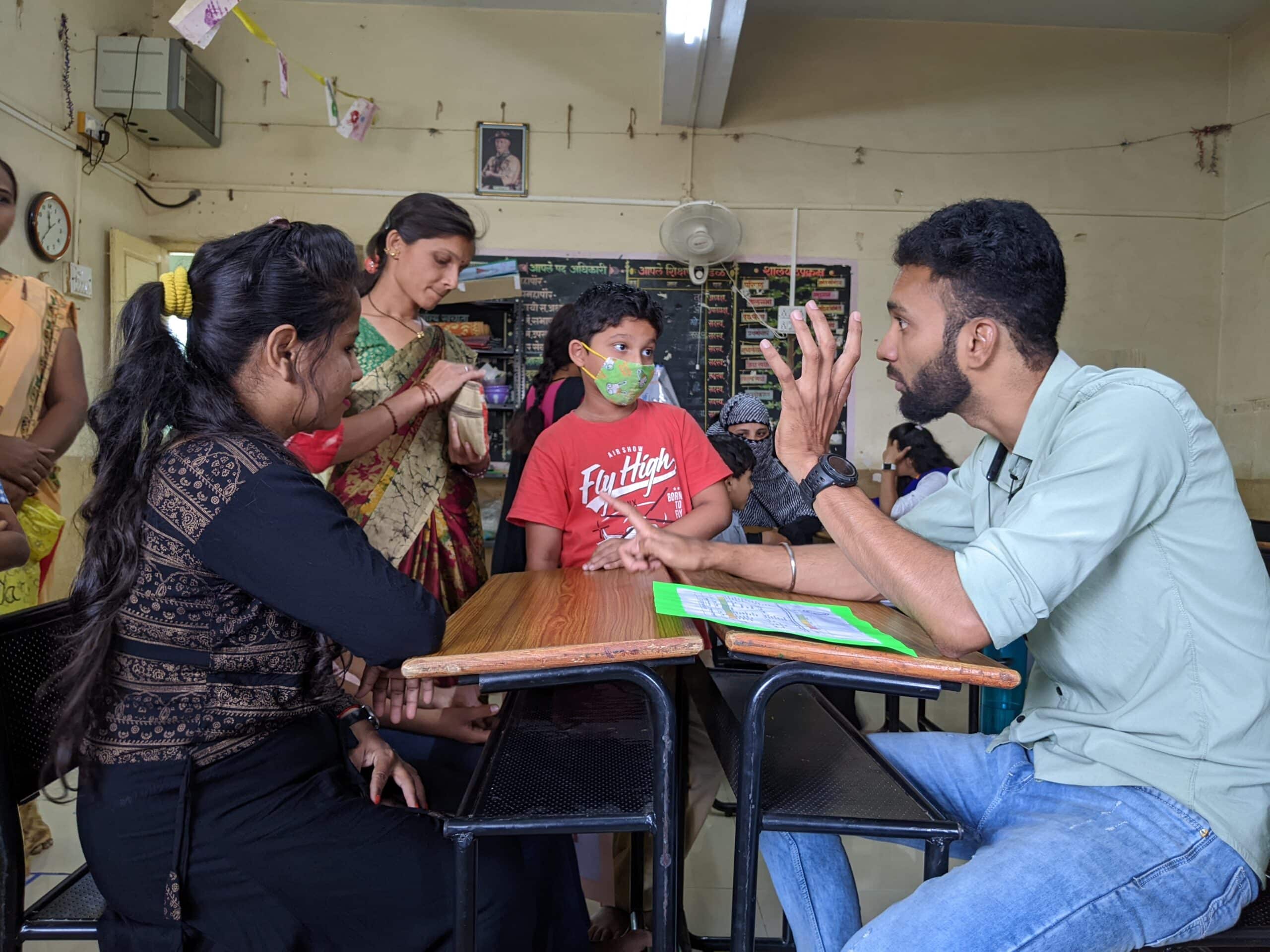
Want to be the first to hear about our prizes and how to apply? Join the T4 Community and you’ll get all the info you need alongside a wealth of resources and professional development opportunities.
T4 Education
Empowering teachers and schools
Join our community
Join 200,000+ educators and leaders getting peer-to-peer Masterclasses, thought-provoking insights and articles, our monthly newsletter, and more.
Contact the prizes team
Popular topics
Empowering teachers and schools
Copyright © 2025 T4 Education. All rights reserved. Privacy Policy.
